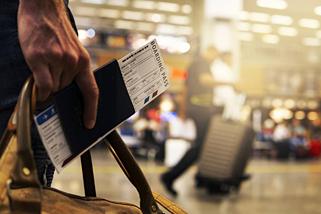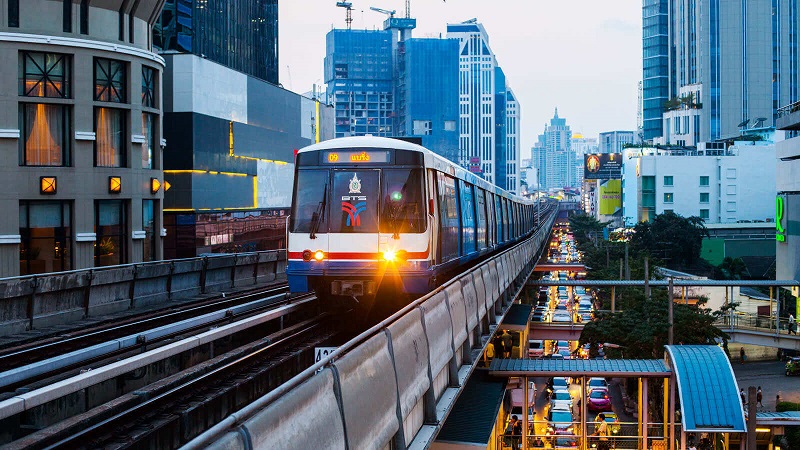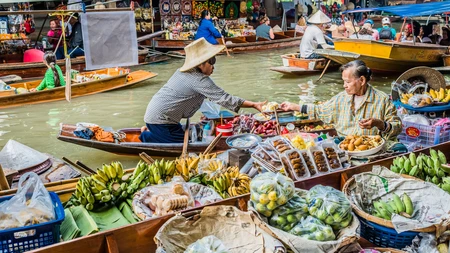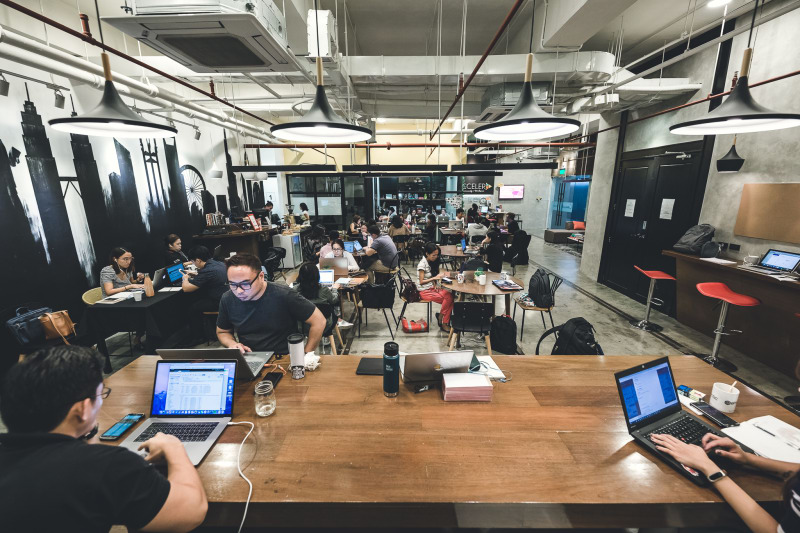Welcome to Bangkok! As an expat relocating to this bustling city, there are a few things you should know to help make your transition as smooth as possible. Bangkok is a vibrant and exciting place to live, with a rich culture and history, delicious food, and friendly people. However, it can also be overwhelming, especially if you’re not familiar with the local customs and way of life. In this Bangkok expat guide, we’ll provide you with some useful tips and information to help you navigate your new home.
Table of Contents
Preparing for the Move: Visa and legal requirements, finding a place to live, and budgeting for the move in Bangkok

Preparing for the move to Bangkok can be an overwhelming process, but with the right information and planning, it can be made much smoother. One of the first things to consider when moving to Bangkok is the visa and legal requirements.
Visa: Depending on the length of your stay and the purpose of your visit, you may need to apply for a tourist visa, a non-immigrant visa, or a work permit. It is important to research the requirements for your specific situation and apply for the appropriate visa well in advance of your move.
Legal requirements: It is also important to be aware of any legal requirements for foreigners living in Thailand, such as obtaining a Thai ID card or registering with the local immigration office.
Finding a place to live: When it comes to finding a place to live in Bangkok, there are many options to consider. Depending on your budget and lifestyle, you may choose to rent an apartment, buy a condominium, or even live in a house. It’s important to consider the location, amenities, and safety of the neighborhood you are looking at.
Budgeting for the move: Moving to a new city can be expensive, so it’s important to budget accordingly. Consider the cost of living in Bangkok, including housing, transportation, and food. Also, factor in costs associated with the move itself, such as airfare, shipping, and storage.
In conclusion, preparing for the move to Bangkok requires careful planning, research, and budgeting. By understanding the visa and legal requirements, researching different neighborhoods and housing options, and budgeting for the move, you can make your transition to Bangkok as smooth as possible.
Settling In: Finding a job, enrolling in healthcare, and enrolling children in school in Bangkok

Settling into a new city can be challenging, but with the right resources and a positive attitude, it can be a smooth and enjoyable process. One of the most important aspects of settling into a new city is finding a job.
Finding a job: Bangkok has a diverse and growing economy, and job opportunities exist in a variety of fields. Some expats find work through networking, others through online job portals, recruitment agencies, or classifieds. It’s a good idea to research the job market in your field and make connections with people in your industry before moving to Bangkok.
Enrolling in healthcare: Another important aspect of settling in is enrolling in healthcare. Bangkok has a wide range of healthcare options, including public and private hospitals and clinics. Researching the options beforehand can help you make an informed decision about which healthcare provider is right for you.
Enrolling children in school: For families moving to Bangkok with children, finding the right school is a top priority. Bangkok has many options for international schools and homeschooling, and it’s important to research the options and visit schools before making a decision.
In conclusion, settling into a new city like Bangkok can be a challenging process, but by focusing on finding a job, enrolling in healthcare, and enrolling children in school, you can make the transition as smooth as possible. Don’t forget to take your time and enjoy the process, and don’t be afraid to ask for help when needed.
Getting Around: Navigating public transportation and driving in Bangkok

Getting around Bangkok can be a challenge for newcomers, but with the right information, it can be manageable. The city offers a variety of transportation options, including public transportation and driving.
Navigating public transportation: Bangkok’s public transportation system includes buses, trains, and boats, which can be confusing for first-time visitors. The BTS Skytrain and MRT subway are the most convenient and efficient ways to get around the city, especially for visitors. However, it’s important to be aware of the different lines and routes, and to carry enough change or a prepaid transit card as not all stations have machines for purchasing tickets.
Driving in Bangkok: For those who prefer to drive, Bangkok can be a challenging place to navigate. The city’s traffic is notorious for being slow-moving and congested. Additionally, finding a parking spot can be difficult, and traffic rules are not always followed. It’s important to be aware of these challenges and to plan accordingly, whether you’re renting a car or bringing your own vehicle.
In conclusion, getting around Bangkok can be challenging, but with the right information and planning, it can be manageable. Public transportation and driving are both viable options, but it’s important to be aware of the unique challenges each presents. With a little patience and flexibility, you’ll quickly find your way around Bangkok.
Living in Bangkok: Understanding the culture, making friends, and finding activities to do

Living in Bangkok can be an exciting and enriching experience, but it can also be a challenge as you adapt to a new culture and way of life. One of the keys to making the most of your time in Bangkok is understanding the culture and customs of the Thai people.
Understanding the culture: Thai culture is steeped in tradition, and it is important to be aware of the customs and etiquette when interacting with locals. For example, it’s important to show respect to elders, to dress modestly, and to remove shoes before entering a temple or someone’s home.
Making friends: Making friends in a new city can be difficult, but there are many opportunities to meet people in Bangkok. Joining a club or group that interests you, such as a sports team or a language exchange group, can be a great way to meet new people.
Finding activities to do: Bangkok is a vibrant and exciting city with a wide range of activities to enjoy. From visiting temples and museums, to shopping at local markets, to trying new foods and experiencing the nightlife, there’s always something to do.
In conclusion, living in Bangkok can be a fulfilling and enriching experience, but it can also be challenging as you adapt to a new culture and way of life. By understanding the culture, making friends, and finding activities to do, you can make the most of your time in Bangkok and enjoy all that this amazing city has to offer.
Working in Bangkok: Navigating the business culture, finding networking opportunities, and understanding the job market

Working in Bangkok can be a rewarding experience, but it can also present its own set of challenges. Understanding the business culture, finding networking opportunities, and understanding the job market are key to success.
Navigating the business culture: Thai business culture is based on relationships and personal connections, and it’s important to be aware of the customs and etiquette when interacting with colleagues and clients. For example, punctuality is not always as strict as in other cultures, and dress code is more relaxed. Also, it’s important to be aware of the concept of “face” which means to avoid embarrassing or causing loss of face to others, it’s important to be polite and tactful in communication.
Finding networking opportunities: Networking is crucial for building connections and finding job opportunities in Bangkok. Joining professional organizations or attending networking events can be a great way to meet people in your industry and to learn more about the job market.
Understanding the job market: Bangkok’s economy is diverse and growing, and job opportunities exist in a variety of fields. However, the job market can be competitive, so it’s important to research the job market in your field and to be prepared for the interview process. Also, learning the local language can be an advantage as it shows your willingness to adapt to the local culture and communicate better with locals.
In conclusion, working in Bangkok can be a rewarding experience, but it’s important to be aware of the business culture, to find networking opportunities, and to understand the job market. With the right approach and resources, you can succeed in Bangkok’s competitive job market and make the most of your time in this vibrant and exciting city.
Managing Finances: Opening bank accounts, managing taxes, and understanding the cost of living in Bangkok

Managing finances in Bangkok can be a challenge, especially for newcomers. Opening bank accounts, managing taxes, and understanding the cost of living are all important aspects to consider.
Opening bank accounts: Opening a bank account in Bangkok is relatively straightforward, but it may require some documentation such as passport and work permit. It’s also important to be aware of the fees associated with different types of accounts, and to compare the interest rates and benefits offered by different banks.
Managing taxes: Thailand has a relatively simple tax system, but it’s important to be aware of the requirements for filing taxes as a foreigner. It’s a good idea to consult with a tax professional or accountant to ensure that you are in compliance with all tax laws.
Understanding the cost of living: Bangkok is relatively affordable compared to other major cities, but it’s important to understand the cost of living and budget accordingly. This includes housing, transportation, food, and entertainment expenses. Keep in mind that while some things are cheaper in Bangkok than in other cities, other things such as imported goods or luxury items can be more expensive.
In conclusion, managing finances in Bangkok can be a challenge for newcomers, but by opening bank accounts, managing taxes, and understanding the cost of living, you can make the most of your money and enjoy all that Bangkok has to offer. It’s important to have a budget and stick to it, and to be aware of the fees and charges associated with different financial products. With careful planning and management, you can ensure that your finances are in order and that you can enjoy your time in Bangkok to the fullest.
Resources for Expats: Support groups, clubs, and organizations, and online resources in Bangkok

As an expat in Bangkok, it can be helpful to have access to a variety of resources to make the transition to a new city as smooth as possible. Support groups, clubs, and organizations, as well as online resources, can provide valuable information and support.
Support groups, clubs, and organizations: There are a variety of groups and organizations in Bangkok that cater specifically to expats. These groups provide a great way to meet other expats and to learn more about the local culture. Some examples of such groups are: expat associations, international women’s clubs, language exchange groups, and hobby-based groups.
Online resources: There are also a wealth of online resources available for expats in Bangkok, including forums, blogs, and social media groups. These resources can provide information about everything from housing and job opportunities, to cultural events and local news. Some popular online resources for expats in Bangkok include: Bangkok Expat Life, Bangkok.com, and Bangkok Expats.
In conclusion, as an expat in Bangkok, it’s important to have access to a variety of resources to make the transition as smooth as possible. Support groups, clubs, and organizations, as well as online resources, can provide valuable information and support. By taking advantage of these resources, you can make the most of your time in Bangkok and enjoy all that this vibrant and exciting city has to offer.
Conclusion: Tips and advice for making the most of your experience living and working in Bangkok
Living and working in Bangkok can be a fulfilling and enriching experience, but it can also present its own set of challenges. The key to making the most of your time in Bangkok is to be prepared, stay open-minded, and make the most of the resources available to you.
- Be prepared: Research and plan ahead as much as possible. Understand the visa and legal requirements, research different neighborhoods and housing options, and budget for the move.
- Stay open-minded: Be open to new experiences and be willing to try new things. Embrace the local culture and customs, and don’t be afraid to step out of your comfort zone.
- Network and make connections: Building connections and relationships is key to success in Bangkok. Join professional organizations, attend networking events, and take advantage of online resources to meet new people and learn more about the local culture.
- Be aware of the cost of living: Bangkok is relatively affordable compared to other major cities, but it’s important to understand the cost of living and budget accordingly.
- Learn the local language: It may not be easy, but learning the local language can make a big difference in your experience. It will help you navigate, communicate better with locals and make you feel more part of the community.
- Take time to enjoy the city: Finally, don’t forget to take time to enjoy the city and all it has to offer. From visiting temples and museums to trying new foods and experiencing the nightlife, there’s always something to do in Bangkok.
In conclusion, living and working in Bangkok can be an exciting and fulfilling experience. By being prepared, staying open-minded, making connections, managing your finances, learning the local language, and taking time to enjoy the city, you can make the most of your time in Bangkok and create an unforgettable experience.
Are you considering moving to Bangkok as an expat? Our comprehensive guide to the city will help you make the most informed decision. First, our “Best Places to Live in Bangkok” neighborhood guide offers a detailed overview of the city’s most desirable areas for expats, including information on nightlife, transportation, and safety. Next, our “Expat’s Guide to the Bangkok Property Market” provides expert advice on how to find the perfect home, from understanding local laws and regulations to budgeting and financing options. Lastly, our guide on “Understanding the Current State of Crime in Bangkok” offers a detailed overview of the city’s crime rate and safety concerns, as well as tips on how to stay safe while living in Bangkok. Don’t make a move without reading our guides first!
Q. What are the essential things to consider before relocating to Bangkok?
Before moving to Bangkok, it’s important to consider the cost of living, which is higher compared to other cities in Thailand, and to research the cultural differences and language barriers as English is not widely spoken.
Q. What constitutes a reasonable salary for an expatriate in Bangkok?
A good expat salary in Bangkok ranges from 50,000 to 100,000 THB per month, depending on the individual’s lifestyle and expenses. It is recommended to have a budget and to research the cost of living before deciding on a salary expectation.
Q. In which areas of Bangkok do expatriates typically reside?
Most expats in Bangkok live in areas such as Sukhumvit, Silom, and Thong Lo, which offer a mix of western amenities and proximity to international schools and shopping centers. These neighborhoods also have easy access to the city’s BTS skytrain system.
Q. Is Bangkok a suitable destination for expatriates?
Bangkok can be a good place for expats, with its diverse culture, delicious food, and vibrant nightlife. However, it can also have challenges such as traffic congestion, air pollution, and cultural differences, so it’s important to research and plan before making the move.

